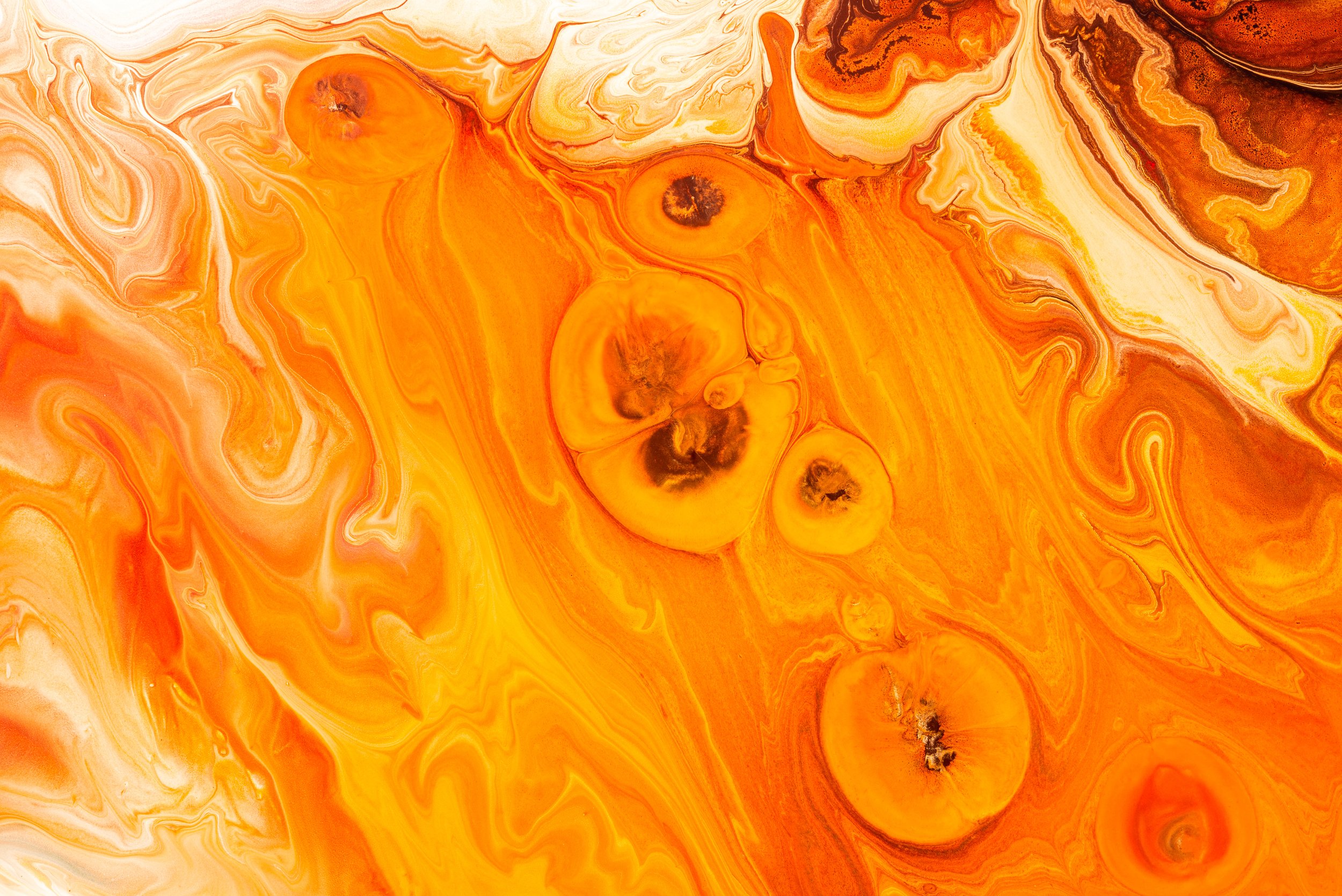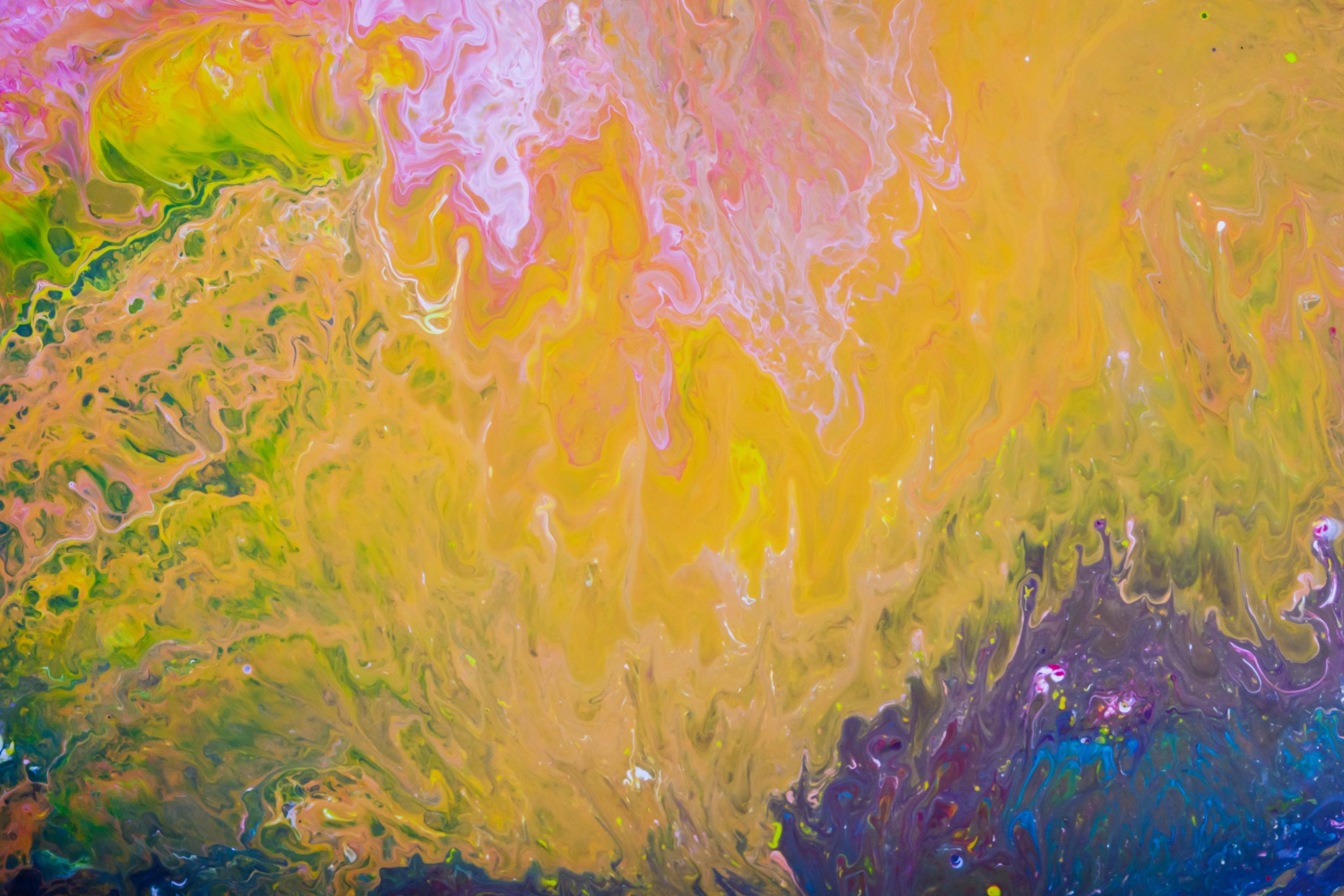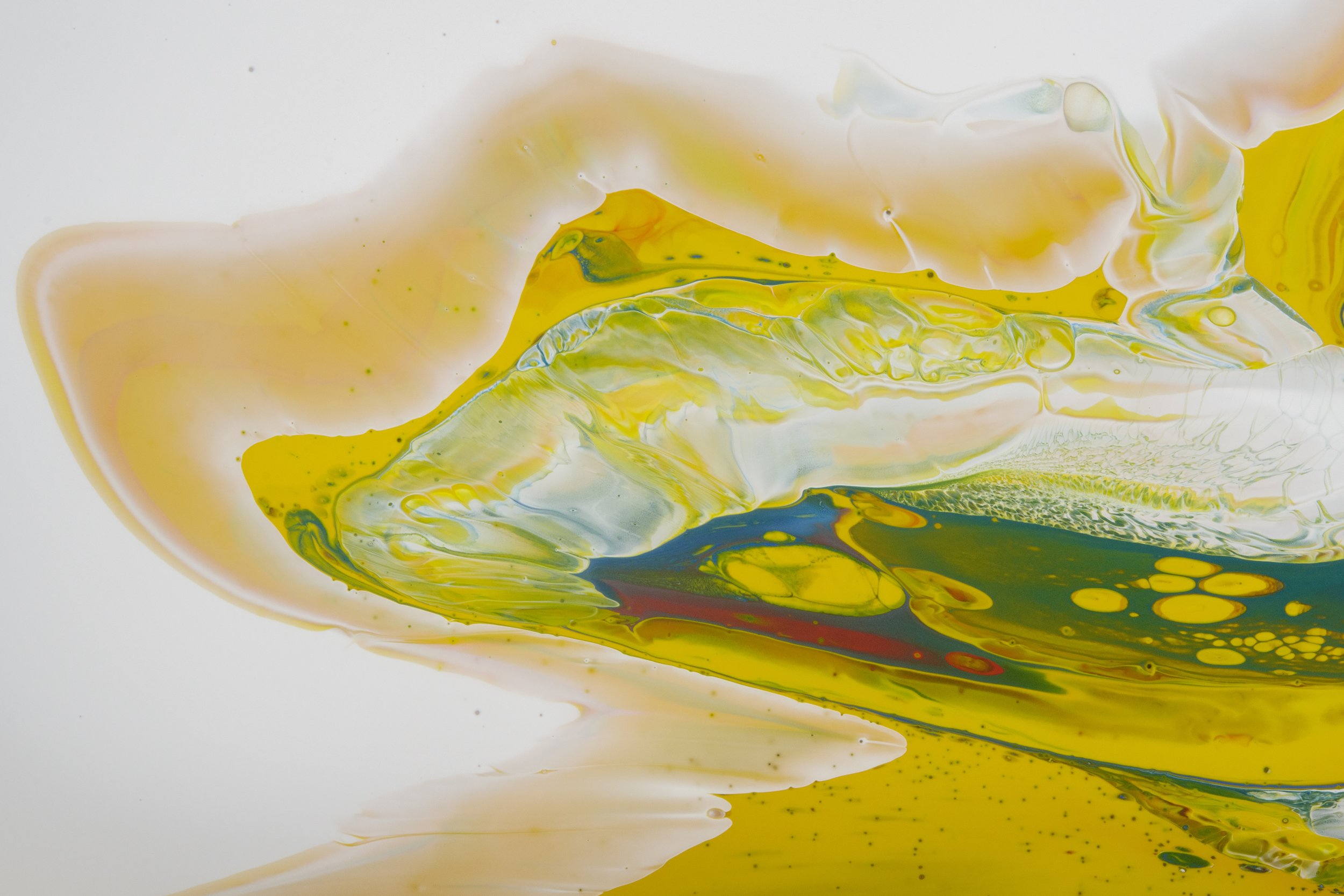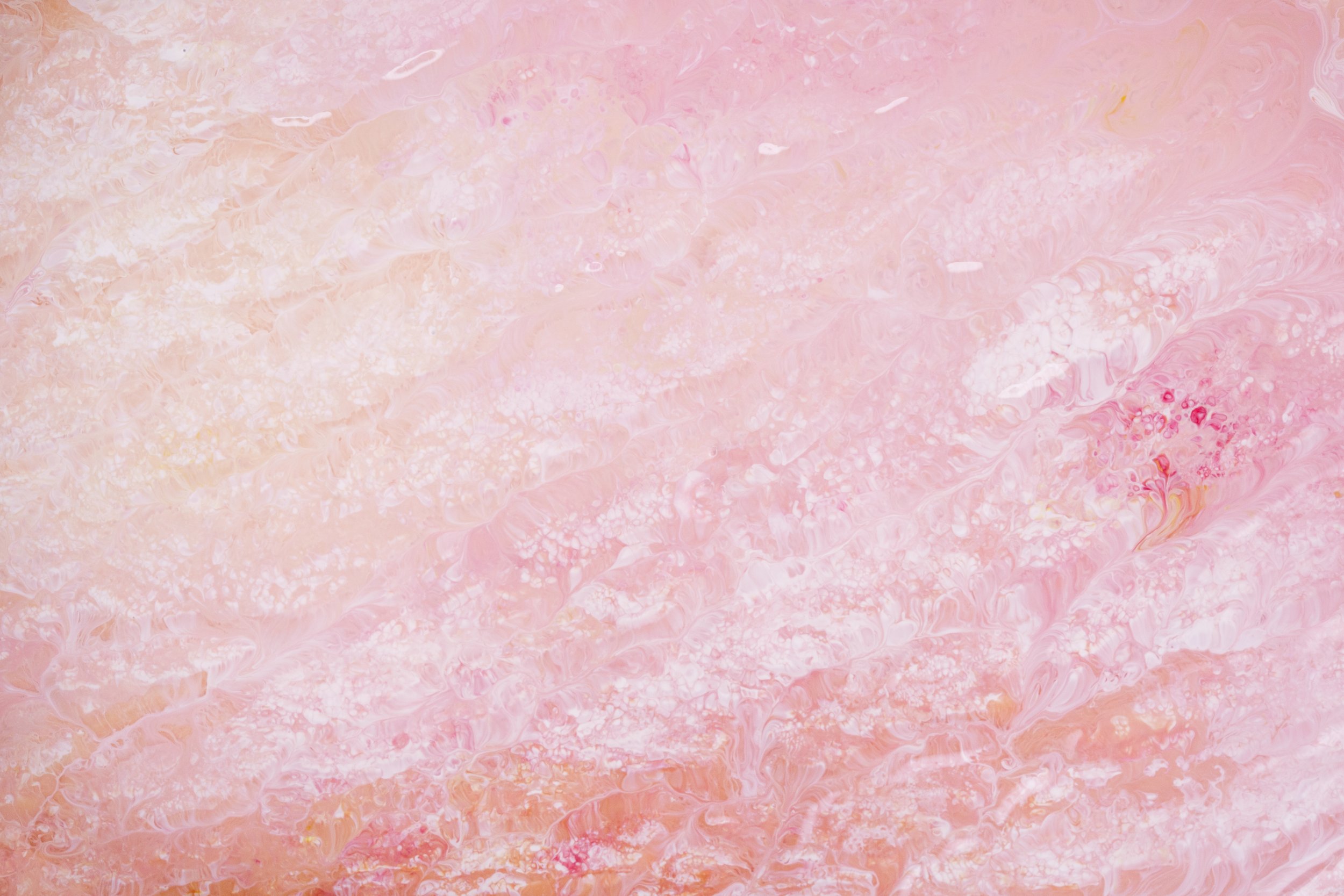How does soft censorship impact the publishing industry and should Australia be worried?
How does soft censorship impact the publishing industry and should Australia be worried?
Ronja Missler
All around the world, countries are experiencing an increase in challenged books, with the United States (US) being one of the most prominent leaders of official book bans. While Australia has not yet faced anywhere near the same amount of censorship attempts as the US, contemporary Australian media is reporting on stories that indicate a significant rise in censorship efforts affecting bookstores, libraries, authors and readers nationwide.
This report aims to research the risks of soft censorship by looking at data available from both the US and Australia. Through interviews with publishing professionals, peer-reviewed research articles and trusted news sources, the report takes an anecdotal and qualitative approach to bring attention to how soft censorship is impacting the Australian publishing industry. The report concludes by discussing different ways to take action against soft censorship and by answering the question: Does Australia have reasons to worry?
Definitions and language
It’s important to note that there is a difference between challenged and banned books. A ‘challenge’ refers to the attempt to remove or restrict literary materials due to objections from an individual or group. A ‘ban’ is the actual removal of said material (ALA 2016; Faller 2023).
The definition of censorship can look a bit different depending on the medium being censored (films, books, news, etc.). However, a generally accepted definition is that censorship is understood as the prohibition and suppression of different forms of expression (Moore 2013). As this report aims to focus on soft censorship, it’s important to also establish the definition of hard censorship to illustrate a clear distinction between the two.
Hard censorship
Hard censorship is a formal type of censorship enforced by governing boards or institutions. This includes book bans, policy reviews and legislative or political limitations that are put in place to remove or limit access to certain types of material (Faller 2023).
Soft censorship
Soft censorship is an informal type of censorship where access to literary materials, resources and services are restricted in various ways due to the fear of backlash from members of the public. Soft censorship can be further divided into self-censorship and silent censorship as it includes more actions than just the physical removal of a book (ALA 2022; Faller 2023).
Self-censorship
When information is voluntarily and intentionally withheld in the absence of formal obstacles, it’s considered self-censorship (Bar-Tal 2017). This type of censorship is carried out by authors who deliberately refrain from writing certain content, themes or characters. Self-censorship can also be disguised as voluntary when there in fact is a negative consequence behind the reason for self-censoring. This is sometimes referred to as pervasive self-censorship (Day 2021).
Silent censorship
Silent censorship can take many different forms. It includes but is not limited to librarians and booksellers who, for different reasons, remove, restrict access or choose not to stock certain titles. Removing books that don’t align with personal values or making titles inaccessible by improper shelving—such as placing them out of reach for young children—are examples of silent censorship (ALA 2022; Faller 2023; Vissing and Juchniewicz 2023).
Limitations
While organisations such as PEN America and the American Library Association (ALA) keep track of books that have been subjected to an official ban and/or challenging process, the informal nature of soft censorship makes it near to impossible to find data and statistics about books that have been unofficially removed or restricted (ALA 2024; PEN America 2023; Triton College Library 2022). It’s also impossible to record all acts of self-censorship and silent censorship. For these reasons, articles from trusted news outlets and interviews with members of the Australian publishing industry will stand for the majority of evidence showcasing an alleged rise of soft censorship in Australia.
I would also like to acknowledge that Indigenous and First Nations people are, in different ways and settings, highly affected by censorship—the publishing industry is no exception. However, not enough data has been collected to give a fair reflection of their experiences and for that reason, there’s a lack of representation throughout this report.
America vs. Australia: a cultural war without borders
In 2023, ALA reported the highest number of challenged books ever recorded in the US (ALA 2024; Unite Against Book Bans 2024). A new report from 2024 shows that 4240 unique titles were targeted for censorship attempts in 2023: a major surge in comparison to previous years, noting a 65 per cent increase since 2022 and 128 per cent since 2021. The report also presented 1247 demands from the public to censor library books, materials and resources. With numbers like these, it’s easy to understand why publishing professionals from around the world are becoming more vocal in their concerns about censorship (Fallon 2024; IFLA 2023).
In Australia, there are centralised federal regulations of the classification and distribution of publications that prevent book bans similar to the ones in the US from happening (Fallon 2024). That said, there are legitimate reasons for increased concerns in Australia too, not least considering the country’s rich and complex history with censorship.
In the early 1900s, Australia applied strict regulations to what printed materials could be imported from overseas or legally banned under the Customs Act, resulting in a surge of banned books (Bowen 2020; Moore 2012). However, thanks to public lobbying and resistance groups, an appeal censor was appointed to the Literature Censorship Board established in 1937 and many bans were lifted thanks to changed regulations (AustLit n.d.; Moore 2012). Since 1970, the Australian Classification Board has been responsible for reviewing, rating and classifying literature.
Undoubtedly, the US has its own rich history of censorship, not least with the Comstock Act: an anti-obscenity law introduced in 1873 that created a spike in book bans (Horowitz 2006). But while a large portion of contemporary American censorship efforts seems to be aimed at pushing for official book bans through state legislations and policies (hard censorship), Australia is mainly facing the struggles of informal soft censorship (Kostakis, interview 2024; PEN America 2023; Schofield, interview 2024). This comes with a set of challenges the Australian publishing industry might not yet be equipped to deal with.
Where does soft censorship occur?
Soft censorship can occur in many different settings; however, much data is gathered from schools and libraries. Speculatively, the reason for this might have to do with libraries being designed to make both historical and contemporary information accessible to all; something that may not be welcomed by everyone (Vissing and Juchniewicz 2023). This lines up with American media reporting on calls for book bans from parents and parental rights groups who claim they want to protect their children by controlling what they read (The Guardian 2023).
In an interview with Martha Itzcovitz (2024), president of the Australian School Library Association (ASLA), she confirms the notable increase of concerned parents approaching librarians about the available collections in Australian school libraries:
It is starting to creep in with parents in school libraries. In all my years of working, I’ve never had it happen before. I’ve never had so many parents question the books that are on shelves and that’s what we hear from our members as well.
Australian media are also reporting on how independent bookshops and a well-known department store recently came in contact with soft censorship. In 2023, Big W confirmed that there had been several incidents of abuse towards their retail staff after shelving Yumi Stynes’ book Welcome to Sex (Rolfe 2023). While Stynes defends the book, saying it’s intended as a healthy option for sex education for children as opposed to using the internet, many critics (mainly parents) still label the book as inappropriate and harmful. This has resulted in Big W withdrawing the book in-store to protect their staff. It is, however, still available to purchase online, but the review section had to be turned off due to the large amount of negative comments (SBS 2023).
Whether or not it should be considered censorship when independent booksellers choose not to stock certain titles can be an exhausting discussion as many factors may be involved in the decision (Sullivan 2020). But when Robinsons Bookshop owner, Susanne Horman, took to the social media platform Twitter to call for more books with ‘just white kids on the cover’, one could argue that her personal opinions are censoring writers from the BIPOC community (Ore 2024). She also made posts saying ‘What’s missing from our bookshelves in store? Positive male lead characters of any age, any traditional nuclear white family stories, kids picture books with just white kids on the cover, and no wheelchair, rainbow or indigenous art, non indig[sic]aus history’ and ‘Books we don’t need: hate against white Australians, socialist agenda, equity over equality, diversity and inclusion (READ AS anti-white exclusion), left wing govt propaganda. Basically the woke agenda that divides people. Not stocking any of these in 2024’. When the public in turn called for a boycott of her bookstores (nine in total) she deleted her tweets, backtracked and apologised, saying the content had been taken out of context.
Bookstores and libraries are both physical settings in which soft censorship can be easier to detect and thus take action against. But it’s also important to underline the more subtle self-censorship many authors and publishers carry out in their work. Australian author, Will Kostakis, expresses constantly having to deal with different forms of censorship as he himself identifies as gay and his YA novels centre around queer characters (Kostakis, interview 2024).
‘I get emails from schools saying “Hey when you visit, don’t mention the fact that you’re gay and don’t talk about any of your gay books”, and I’m like, well that’s all of them so what am I going to do? … I’m at the trajectory of my career where if I want to keep meetings at schools and want my texts to be on reading lists at schools—where all the money is and where the readers are—I have to hold back. So I’m considering controlling what I write. So you’ve got that external pressure that becomes self-censoring’.
As for the publishing side of things, Australian trade publishers of non-fiction and autobiographies are often balancing a fine line between soft censorship and trying to avoid defamation. Aware of the costly legal consequences of publishing libel, many publishers—consciously or not—carry out pervasive self-censorship in preventative measures, asking writers to leave out or tone down certain content or, consequently, risk not being published at all (Day 2021).
Minorities at high risk for censorship
Although censorship isn’t exclusively limited to one specific group of people, data clearly show that some groups are more targeted than others. In the ALA report of challenged books in 2023, 47 per cent of the 4240 unique titles are books written by authors from the LGBTQIA+ and/or BIPOC community or deal with such themes and/or characters (ALA 2024).
As Australia isn’t (yet) seeing anywhere near the same number of challenged titles, recorded data is hard to come by—if such carefully curated data even exists. That said, titles commonly reported on in Australian media have, in a similar fashion, dealt with themes of sexuality and gender. As of recent, a Western Sydney council has voted to ban a same-sex parenting book—despite the risk of breaching the Anti-Discrimination Act—removing it from the shelves of eight different libraries in the district (Bahr 2024); the book Gender Queer has been referred to the Australian Classification Board by both a Queensland librarian and independent Sydney bookstore, Kinokuya, after complaints made by, in each case, one single person (Books+Publishing 2023a; Saunokonoko 2023); and drag queen storytime has been cancelled at several different locations across New South Wales and Victoria (Susas 2024; Cunningham 2023). These are just a few examples of censorship attempts aimed at the LGBTQIA+ community.
While it’s easy to focus on the writers who are affected by soft censorship, it’s important also to remember the readers. Reports show that the number of Australian children who read for pleasure is dropping (Books+Publishing 2023b). While there may be many reasons why that is—such as screen-based activities being a more popular choice—Martha Itzcovitz says having the freedom to choose what to read is an important part of preventing the numbers from stooping even lower.
Indigenous queer author Gary Lonesborough adds to the conversation by expressing the importance of being able to identify with a book’s characters; something he himself struggled with growing up. For many years, he stopped reading until he decided to address the problem by writing a book queer Aboriginal youth could relate to, resulting in The Boy from the Mish. ‘I’ll certainly continue writing stories about Aboriginal characters’ he says, ‘because books can help you understand yourself better. Our stories deserve to be told. Everyone deserves the chance to read them’ (Lonesborough 2021).
Research shows that children are more likely to finish a book they’ve picked out themselves. According to the Australian Kids and Family Reading Report, 74 per cent of children say they would read more if they could—with or without guidance from an adult—find more books they like (Evans n.d.).
Impacts of soft censorship
Three areas stand out when looking into what challenges soft censorship brings to the Australian publishing industry: Negative impacts on the careers of Australian authors, unsafe work environments for book distributors and a threat to the Freedom to Read.
Negative impacts on the careers of Australian authors
Will Kostakis (interview 2024) says censorship efforts of minority writers go beyond being told not to say gay at school visits. Besides struggling with publishers wanting him to write queer stories but not feeling supported by them when being censored because of said stories, he also points to the challenging financial aspects:
My book The Sidekicks … Somebody who hadn’t read it, who had heard me speak before about a book with queer characters, said it was no longer appropriate for me to come and speak because I came out in a website blog that didn’t even directly mention the fact that I was gay. By the strength of one catholic school having that opinion, I lost all my school bookings for six months.
He also spoke about the realities of book deals and trying to financially survive as a writer:
We might not have book bans in Australia but to survive as a writer you want to chase the US book deal. An Australian book deal might be worth between five and ten thousand Australian dollars, a US book deal is fifty to a hundred thousand US dollars. My friend, who is bi [sexual], pitched four books to an American publisher and the only book they wanted was the one with not a trace of queer subtext. So even if we’re not censoring for the Australian market you still have to censor your books for the overseas market.
Lastly, he touched on the toll it takes on him personally and on his reputation as an author:
It always hurts and I’m always like ‘I’m gonna stick it to them’ but at the end of it, I just feel like publicly I have to be a really angry person … I was in a meeting once where an author found out she was getting banned in the US and at first she was excited because of the clout she was going to get, but then she quickly realised that this is actually terrible … Even if you get the book sales, you’re still tarnished and it’s this really weird thing where I’m now seen as controversial when it’s like, no, you just put me in a position where I have to defend my own humanity.
Unsafe work environments for book distributors and librarians
Bomb threats against libraries, librarians risking lawsuits and jail time, and a black-owned bookshop closing down after receiving violent threats are just some of the news circulating in current American media (Alfonseca 2024; Associated Press 2024; Cerullo 2024). With Big W having to restrict the book Welcome to Sex to online sales only after threats were made against their staff, it’s certainly not unreasonable to worry about how soft censorship will affect booksellers going forward (Rolfe 2023).
It’s not only Australian booksellers who have to deal with harassment. After having to cancel several drag-themed events, Victoria State Library’s chief executive, Paul Duldig, says Victorian librarians will be trained in how to safely respond to intimidation and abuse. He also expresses concern over the rise in coordinated censorship efforts and incidents, including threats towards staff, book theft and forced cancellation of LGBTQIA+ events, saying ‘We are facing a situation that has never happened before in living memory’. (Cunningham 2023; SLV 2023). On the contrary, Martha Itzcovitz (interview 2024) says school libraries are still safe work environments by in large thanks to school executives being the ones responsible for dealing with book challenges, and not the librarians themselves. She is yet to hear of cases where ASLA members—school librarians—are exposed to threats.
A threat to the Freedom to Read
Many international and Australian organisations are publicly taking a stand against censorship and book bans. The International Literacy Association states that it’s a basic human right to read and that children have the right to choose what they read (ILA n.d.). Australian Library and Information Association (ALIA) and the Australian Public Library Alliance (APLA) have also released statements supporting free access to information in Australian libraries (ALIA n.d.; ALIA 2024). But is it enough to fight censorship?
Lydia Schofield, Melbourne/Naarm-based writer and editor, says she’s more scared of the soft censorship she sees taking place in Australia as it’s less overt than the book bans happening in the US (Schofield, interview 2024).
‘The Classification Board can sort of protect books like Gender Queer and make sure it stays on the shelves. But actually taking things off shelves? We don’t have a clear strategy or system for that. I think I’m more scared that schools and public libraries can do basically whatever they want. It makes it more insidious’.
She adds that not having systems and/or policies put in place adds to the risk of increased censorship attempts:
I think we’re at this weird risky point where the publishing side and the actual systems don’t allow for bans but also don’t don’t allow for them … I really think we are at risk for increased censorship.
Conclusion
What is the best way to approach soft censorship? While it’s a near-impossible question to answer, the interview respondents have a few ideas of their own: While Martha Itzcovitz expresses the need for more education on the matter, Will Kostakis is hesitant, arguing that it is mainly educators who have been censoring him and his stories. Lydia Schofield says she’d like to see some legal frameworks put in place that protect freedom of speech better, together with something similar to WorkSafe for artists.
‘We currently don’t have any proactive measures and we don’t have any defensive measures. I think it’s probably easier for the Society of Authors or Writers Victoria to look after artists because the publishers aren’t going to do it until it’s affecting their absolute bottom line’.
Based on the data presented in this report, it’s valid to argue that Australian readers, writers and the publishing industry at large have reasons to worry about the increased censorship efforts spreading nationwide. While it is a complex multifaceted issue, it’s clear that more research is needed to stay one step ahead of the censors and to map out what measures are necessary to avoid a situation similar to what can be seen taking place in the US.
Ronja Missler (she/her) is originally from Sweden and decided to leave the cold Nordic weather behind for the slightly less cold weather in Naarm. When she's not studying for a master’s in writing and publishing at RMIT, you'll find her reading, killing her house plants (but trying really hard not to) or people-watching.
-
Aidone, D 2023, “‘I make no apologies”: Yumi Stynes responds to Welcome to Sex critics’, SBS News website, accessed 3 May 2024, <https://www.sbs.com.au/news/article/yumi-stynes-responds-to-welcome-to-sex-critics/5m410xlvf>.
ALA (American Library Association) 2016, ‘Banned Book FAQ’, ALA website, accessed 9 May 2024, <https://www.ala.org/aboutala/offices/publishing/ala_online_resources/onlineresources>.
ALA (American Library Association) 2022, ‘Terms and Definitions Related to Intellectual Freedom & Censorship’, ALA website, accessed 26 April 2024, <https://www.ala.org/united/advocacy/challenges>.
ALA (American Library Association) 2024, ‘American Library Association reports record number of unique book titles challenged in 2023’, ALA website, accessed 5 May 2024, <https://www.ala.org/news/2024/03/american-library-association-reports-record-number-unique-book-titles>.
ALIA (Australian Library and Information Association) (n.d.) Joint Statement from the Australian Library and Information Association (ALIA) and the Australian Public Library Alliance (APLA) in support of free access to information in Australian libraries. ALIA website, accessed 19 March 2024: https://alia.org.au/Web/Web/News/Articles/2023/4-April-/ALIA_APLA_Statement_Access_Information.aspx
ALIA (Australian Library and Information Association) (2024) Protect the freedom to read, ALIA website, accessed 8 May 2024: https://alia.org.au/Web/Web/News/Articles/2024/May-2024/ALIA_freedom_to_read.aspx
Alfonseca, K (2024) Librarians say they face threats, lawsuits, jail fears over ongoing book battles. ABC News (US) website, accessed 8 May 2024: https://abcnews.go.com/US/librarians-face-threats-lawsuits-jail-fears-ongoing-book/story?id=109081570
Associated Press (2024) Drag Story Hour at Library Canceled After Suspicious Package and Threats, Authorities Say. US News website, accessed 8 May 2024: https://www.usnews.com/news/best-states/pennsylvania/articles/2024-03-23/drag-story-hour-at-library-canceled-after-suspicious-package-and-threats-authorities-say
AustLit (n.d.) Banned in Australia Federal Book Censorship, 1900-1973, AustLit website, accessed: 26 April 2024: https://www.austlit.edu.au/austlit/page/5962177
Bahr, J (2024) Library funding under threat over 'culture war' same-sex book ban, SBS News website, accessed 9 May 2024: https://www.sbs.com.au/news/article/library-funding-under-threat-over-culture-war-same-sex-book-ban/psbza38ov#
Bar-Tal, D (2017) ‘Self-Censorship: The Conceptual Framework’, Advances in Political Psychology, 38:1, doi:10.1111/pops.12391
Books+Publishing (2023a) Kinokuniya awaits ‘Gender Queer’ classification appeal, Book+Publishing website, accessed 19 March 2024: https://www.booksandpublishing.com.au/articles/2023/05/26/231524/kinokuniya-awaits-gender-queer-classification-appeal/
Books+Publishing (2023b) ABS survey finds children are reading less. Books+Publishing website, accessed 8 May 2024: https://www.booksandpublishing.com.au/articles/2023/04/27/230203/abs-survey-finds-children-are-reading-less/
Bowen, J (2020) ‘Take your partners: Media, government and public participation in the 1930s campaign against censorship in Australia’ Australian Journalism Review, 42:2, doi:10.1386/ajr_00040_1
Cerullo, M (2024) Black-owned children's bookstore in North Carolina is closing over alleged threats. CBS News website, accessed 8 May 2024: https://www.cbsnews.com/news/northcarolina-raleigh-childrens-bookstore-black-owned-death-threats-imagination-station/
Cunningham, M (2023) Librarians to be trained in dealing with abuse after extremist threats, The Age website, accessed 9 May 2024: https://www.theage.com.au/national/victoria/librarians-to-be-trained-in-dealing-with-abuse-after-extremist-threats-20230912-p5e405.html
Day, K (2021) ‘Gagging the Writer: The Implicit Censorship of Non-Fiction Trade Book Publishing in Australia’ TEXT, 25:1:1-18, doi:10.52086/001c.23465.
Empson, O (2023) Book bans use ‘parental rights’ as cover to attack civil liberties, Democrat warns, The Guardian (US) website, accessed 3 May 2024: https://www.theguardian.com/us-news/2023/dec/21/book-bans-democrat-warning-maxwell-frost
Evans, A (n.d.) The Importance of Reading and Choice. Scholastic website, accessed 8 May 2024: https://scholastic.com.au/about-scholastic/scholastic-blog-and-news/reading-and-choice/
Faller, L (2023) ‘Contemporary Library Censorship Tactics: Reviewing the Literature’ PSU McNair Scholars Online Journal, 16:1:10, doi:10.15760/mcnair.2023.16.1.10
Fallon, A (2024) Book bannings the canary in the coal mine — and Australia could be next. Crikey website, accessed 19 March 2024: https://www.crikey.com.au/2024/02/01/book-bannings-culture-war-australia/
Horowitz, H. L. (2006) Coda: ‘The Comstock Law of 1873’ in: Attitudes toward Sex in Antebellum America. The Bedford Series in History and Culture. Palgrave Macmillan, New York. doi:10.1007/978-1-137-05413-5_4
IFLA (International Federation of Library Associations and Institutions) (2024) International organisations for authors, publishers, booksellers and libraries call for key freedoms to be respected. IFLA website, accessed: 26 April 2024: https://www.ifla.org/news/freedom-of-expression-to-read-and-to-publish/
ILA (International Literacy Association) (n.d.) Children’s Rights to Read, ILA website, accessed 8 May 2024: https://www.literacyworldwide.org/get-involved/childrens-rights-to-read/download-the-childrens-rights-to-read
Itzcovitz, M 2024, Interview with Martha Itzcovitz, interviewed by Ronja Missler, 2 May 2024, online.
Kostakis, W 2024, Interview with Will Kostakis, interviewed by Ronja Missler, 2 May 2024, online.
Lonesborough, G 2021, ‘I stopped reading because I couldn't see myself in books. So I wrote one instead’, The Guardian (AU) website, accessed 8 May 2024, <https://www.theguardian.com/books/2021/mar/01/i-stopped-reading-because-i-couldnt-see-myself-in-books-so-i-wrote-one-instead>.
Moore, N 2012, The Censor’s Library, University of Queensland Press, St Lucia.
Moore, N 2013, ‘Censorship Is’, Australian Humanities Review, 54:45-65, <https://australianhumanitiesreview.org/2013/05/01/censorship-is/>.
Ore, A 2024, ‘Victoria’s Robinsons Bookshop apologises after owner’s call for more ‘white kids’ on book covers’, The Guardian (AU) website, accessed 26 April 2024, <https://www.theguardian.com/australia-news/2024/jan/29/victoria-robinsons-bookshop-apologises-after-owners-call-for-more-white-kids-on-book-covers>.
PEN America n.d., ‘PEN AMERICA INDEX OF SCHOOL BOOK BANS – 2022-2023’, PEN America website, accessed 25 April 2024, <https://pen.org/2023-banned-book-list/>.
PEN America 2023, ‘EDUCATIONAL CENSORSHIP CONTINUES: THE 2023 LEGISLATIVE SESSIONS SO FAR’, PEN America website, accessed 26 April 2024, <https://pen.org/educational-censorship-continues-in-2023/>.
Rolfe, B 2023, ‘Anger intensifies over Welcome to Sex book in Big W and Target’, News website, accessed 3 May 2024, <https://www.news.com.au/lifestyle/parenting/teens/anger-intensifies-over-welcome-to-sex-book-in-big-w-and-target/news-story/8d87194408908c18b2cccd14c73ac4db>.
Saunokonoko, M 2023, ‘Gender identity memoir removed from Queensland library shelf, referred to classification board’, 9 News website, accessed 19 March 2024, <https://www.9news.com.au/national/maia-kobabe-gender-queer-a-memoir-book-under-review-classification-board-faces-potential-ban/13afc8b4-5e78-4989-857b-38ffb8fee9da>.
Schofield, L 2024, Interview with Lydia Schofield, interviewed by Ronja Missler, 2 May 2024, online.
SLV (State Library Victoria) 2023, ‘State Library Victoria stands against challenges to intellectual freedom on International Democracy Day’, SLV website, accessed 8 May 2024, <https://www.slv.vic.gov.au/interact-with-us/media-centre/state-library-victoria-stands-against-challenges-intellectual-freedom>.
Sullivan, V 2020, ‘The bookseller’s dilemma: What bookstores won’t stock’, Books+Publishing website, accessed 30 April 2024, <https://www.booksandpublishing.com.au/articles/2020/02/26/146341/the-booksellers-dilemma-what-bookstores-wont-stock/>.
Susas 2024, ‘Hills Shire Council rejects drag queen storytime’, The Sydney Morning Herald Website, accessed 9 May 2024, <https://www.smh.com.au/national/nsw/hills-shire-council-rejects-drag-queen-storytime-20240212-p5f47w.html>.
Triton College Library 2022, ‘Banned Books Week 9/18-9/24/2022: How Does the Challenge Process Work?’, Triton College Library website, accessed 6 Mat 2024, <https://library.triton.edu/c.php?g=1073138&p=7814213#:~:text=The%20person%20who%20initiated%20the,from%20the%20collection%20or%20retained>.
Vissing, J and Juchniewicz, M 2023, ‘Children’s Book Banning, Censorship and Human Rights’, in Zadja J et al. (ed), Globalisation, Values Education and Teaching Democracy, Globalisation, Comparative Education and Policy Research: 35, Springer Nature, Switzerland, pp.181-201, accessed 5 May 2024, <doi:10.1007/978-3-031-15896-4>
Unite Against Book Bans 2024, no title, Unite Against Book Bans website, accessed 26 April 2024, <https://uniteagainstbookbans.org/2023-book-bans/>.















